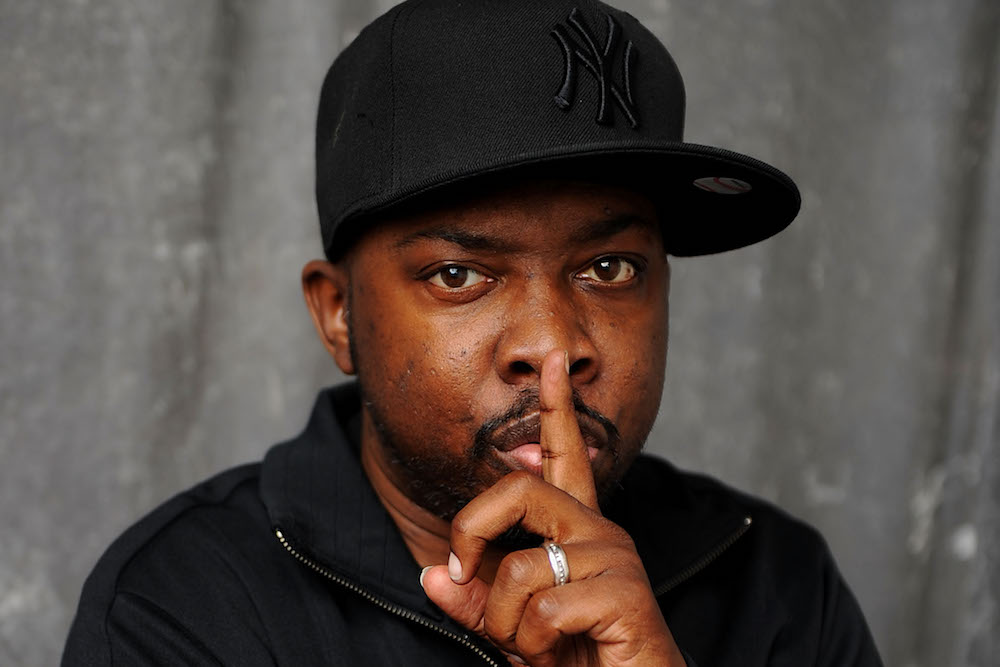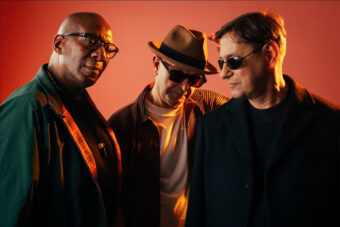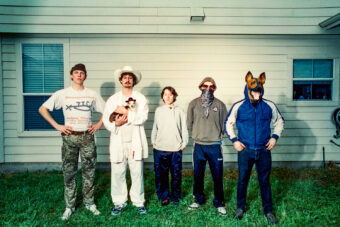Born in 1970, Phife Dawg grew up Malik Taylor writing poems and rapping around his native Queens, New York neighborhood before forming A Tribe Called Quest in 1985 with childhood friends Q-Tip and Ali Shaheed Muhammad. Nicknamed “The Five-Foot Assassin,” or just “The Five-Footer” for his stature, Phife’s persona was both larger than life and beautifully honest. Through the decades, the band’s daring and eclectic style would forever change the landscape of alternative hip-hop.
Though Tribe’s first album, People’s Instinctive Travels and the Paths of Rhythm (1990), mostly kept Q-Tip at the forefront, with their sophomore effort The Low End Theory (1991) Phife took on a larger role within the group. On “Check The Rhime,” the call-and-response between Q-Tip and Phife brought his lyrical talent to the forefront: “You on point, Phife?/All the time, Tip.” The music video for “Buggin’ Out” is a greyscale tour of a New York park before Phife’s second verse kicks in: “Yo, microphone check, one-two, what is this?/The Five Foot Assassin with the roughneck business.” All of a sudden, full-color alternating neon backgrounds, Phife gesticulating through a barrage of punchlines, a breakneck contrast to Q-Tip’s steady musings. The lyrical play between the two quickly became a defining feature of the group’s music. Phife’s boasting didn’t have the breezy confidence of his costar, but his off-beat bars about condoms and Cheez Whiz helped define both a new type of hip-hop and a new hip-hop listener.
Turning away from a mainstream they saw as fossilized by the tough-guy rapper archetype, Tribe aligned themselves with other New York groups De La Soul and Jungle Brothers and soloist Queen Latifah, forming the Native Tongues collective. This Zulu Nation-inspired supergroup prioritized Afrocentrism and positive energy, carving out a space of free expression within hip-hop that would be pivotal to its future—they are repeatedly marked as an influence by figures like Kanye West, Pharrell Williams, and ?uestlove.
Immersing themselves in the far-reaching samples of their production and praised the social commentary of their lyrics, Phife himself often struggled to move smoothly in-and-out of the world of quirky heroics he was helping to invent. Fighting diabetes since 1990—he famously worked into one of his unconventional boasts: “When’s the last time you heard a funky diabetic?”—Phife was never swept all the way into stardom, despite his increasing popularity and critical acclaim. “I just thought we were going to be celebs in the hood,” he told the New York Times. Though his expressive style became known worldwide, there was still an unsteady future ahead.

Also Read
10 Vinyl Releases You Need Now
After completing their historic three-peat with Midnight Marauders, ATCQ had solidified themselves as prominent figures of ‘90s hip-hop. They were honored as Group of the Year at The Source Awards after receiving both the first five-mic rating and the first back-to-back five mics in the magazine’s history—and Midnight Marauders went platinum even faster than Low End Theory. However, the musical direction was changing. Q-Tip had begun working alongside a young J Dilla (then Jay Dee) and converted to Islam along with Ali, and their shared vision begin to break from Phife’s. After a couple more albums, they mostly stopped recording together.
As Phife continued accruing medical expenses, the group would support him, returning on tour in 2006. In 2008, after years of waiting, he was able to receive a kidney transplant from his wife, but it failed and he returned to the waiting list. In 2015, after the reissue of People’s Instinctive Travels, Tribe began recording one final album, We Got It from Here… Thank You 4 Your Service, finished and released by the remaining members after his death from diabetes complications on March 22, 2016.




